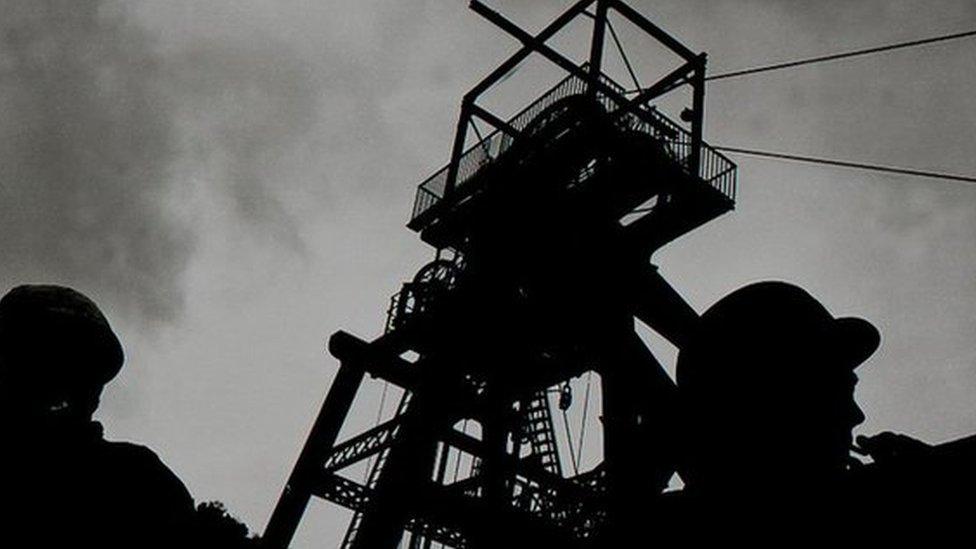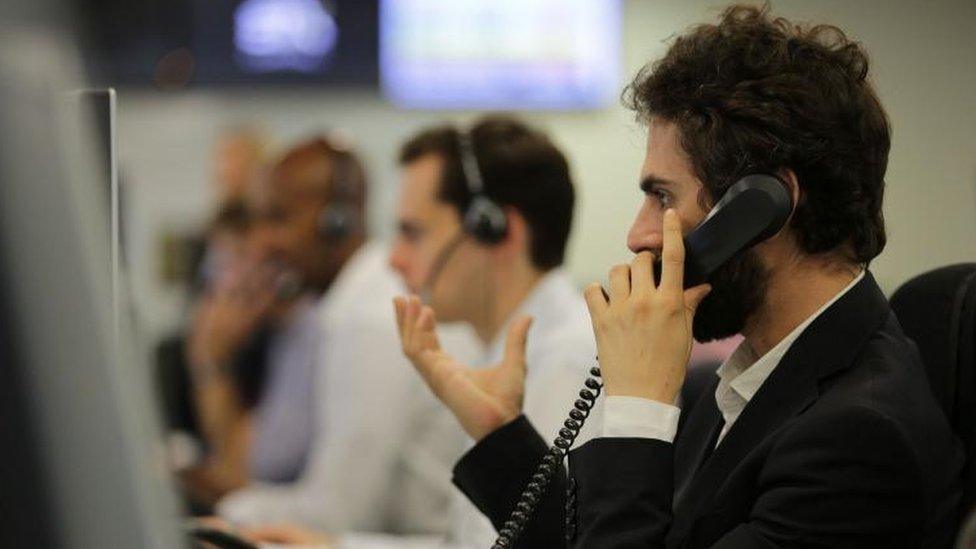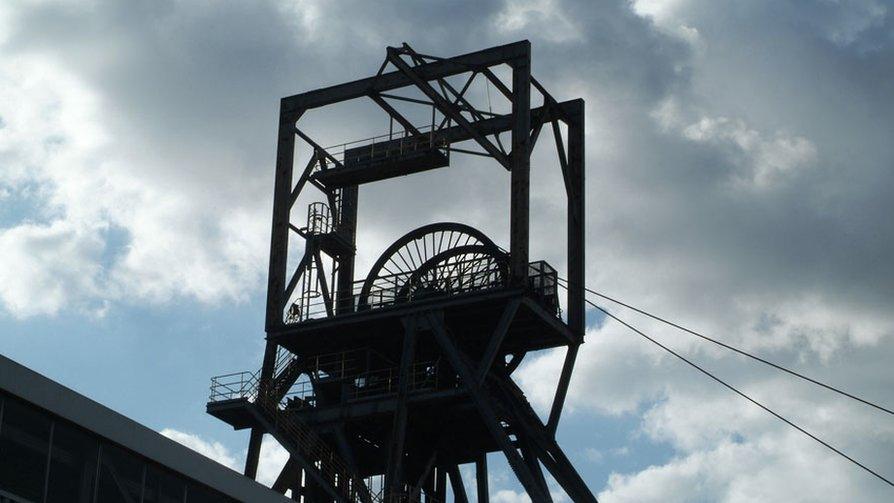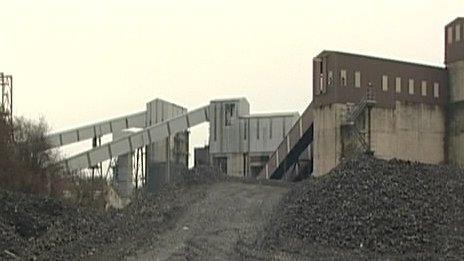Miners' pensions 'should not be used as a cash cow'
- Published
Steffan Lewis says calls for a review of the surplus of the Mineworkers Pension Scheme (MPS) is based on a principal of 'fairness'
Former miners in Wales are calling for a review of their pension fund, arguing they should be awarded a larger share of surplus money.
Currently, the UK government takes 50% of any surplus earned by the Mineworkers' Pension Scheme (MPS) from its investments as part of a guarantee.
The UK government said pensions were approximately 30% larger than they would have been otherwise.
But Plaid Cymru AM Steffan Lewis said the fund was used as a "cash cow".
About 25,000 miners are thought to be in receipt of the MPS in Wales, according to NUM south Wales area general secretary Wayne Thomas.
When the coal industry was privatised in 1994, the UK government agreed to guarantee the total pension would not fall in cash terms, and that if there was a surplus it would be shared 50/50 with the scheme's members.
A pension surplus is when the value of cash, investments and other assets in the scheme exceed the amount it needs to pay the pensions of its members.
Since the deal was struck, the UK government said it had received £3.35bn from the scheme.
Mr Lewis, Plaid AM for South Wales East, said: "In recent weeks the UK government has disgracefully decided not to properly address a past injustice against the miners - the Battle of Orgreave.
"In addition to addressing past injustices, it must now confront an ongoing injustice, the use of the Mineworkers' Pension Fund as a cash cow for the state.
"It is time for a review so that the surplus from the fund is more fairly split between government and miners."
It's our money, says former miner Ken Sullivan
Ex-miner Ken Sullivan, 64, of Tredegar, Blaenau Gwent, has collected a petition with 8,000 names calling for a review of the deal.
Mr Sullivan, who worked in Oakdale colliery, near Blackwood, for 24 years, said miners were told to "think of the future - think of when you retire".
"Well, we all thought of that when we paid in 5.5% of our salary into the pension pot, and then when we come to retire, what do we get? I get 50% less than what I should be getting," Mr Sullivan said.
He claimed some miners are on less than £10 a week.
The NUM's Mr Thomas said his union wanted to retain the government guarantee but wanted to see a review of the 50/50 surplus split.
"The people who we are dealing with in the mining communities don't want handouts. They don't want to rely on the state," he said.
"But I am dealing with a lot who are on the state because their pensions are low.
"If we had some of the surplus back to trustees we would be able to boost their pensions."

The UK government says its guarantee means miners' pensions will continue to rise in line with inflation
Paul Davies, of the Welsh Conservatives, said in a Senedd debate that it was "crucial that a pension scheme of this nature is guaranteed by the UK government".
He added: "It's quite clear that the UK government has received substantial amounts of money and that's why we believe it is appropriate that a review takes place."
UKIP group leader Neil Hamilton said: "It is right that any surplus should be shared with the government.
"But the 50/50 split now looks very far from a definition of fairness."
A Plaid Cymru motion calling for a review was passed unopposed.
A Welsh Government spokesman said First Minister Carwyn Jones had written to the UK government supporting the NUM's call for a review.
He added: "The first minister has also called on the UK government to clarify its position on the reserve fund that has been created out of the surpluses, developed in part to support the remaining deep mining industry.
"The Welsh Government supports the NUM's call for this to be put back into the scheme for the benefit of the retired miners and coal industry workers."
A spokeswoman for the Department for Business, Energy and Industrial Strategy said: "The government continues to guarantee that pensions will be paid.
"Members have received pensions approximately 30% larger than would have been the case without the guarantee and these will continue to rise in line with inflation."
- Published10 October 2016

- Published1 July 2013

- Published2 May 2013
